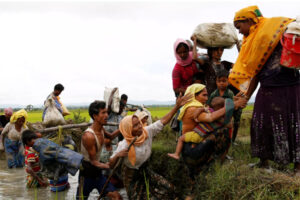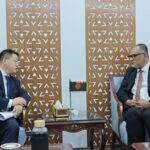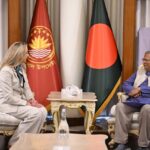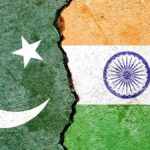 Shafiqul Elahi: 25th August marks the 5 years of the Rohingya crisis. On 25th August 2017, Myanmar Military launched its inhumane ‘Clearance Operation’ against the Rohingya with an intention of ethnic cleansing. The Junta destroyed village, inflicted torture, raped women and killed many. The operation was so brutal that the United Nations High Commissioner for Human Rights described it as a ‘textbook example of ethnic cleansing’ and many later findings confirmed that Myanmar has committed crimes against humanity, genocide and atrocities. As the fear of persecution grew, the Rohingya were forced to exodus to neighboring Bangladesh. 745000 Rohingya came to Cox’s Bazaar as Bangladesh opened its border on humanitarian Ground. Since then, 5 years have passed without any viable solution to the crisis. On the fifth anniversary, let’s take a look at the current scenario and concerns of the crisis.
Shafiqul Elahi: 25th August marks the 5 years of the Rohingya crisis. On 25th August 2017, Myanmar Military launched its inhumane ‘Clearance Operation’ against the Rohingya with an intention of ethnic cleansing. The Junta destroyed village, inflicted torture, raped women and killed many. The operation was so brutal that the United Nations High Commissioner for Human Rights described it as a ‘textbook example of ethnic cleansing’ and many later findings confirmed that Myanmar has committed crimes against humanity, genocide and atrocities. As the fear of persecution grew, the Rohingya were forced to exodus to neighboring Bangladesh. 745000 Rohingya came to Cox’s Bazaar as Bangladesh opened its border on humanitarian Ground. Since then, 5 years have passed without any viable solution to the crisis. On the fifth anniversary, let’s take a look at the current scenario and concerns of the crisis.
During the last five years, the international attention decreased drastically. The conflicts around the world have diverted the priority and funding. Declining funds also put pressure on the host, Bangladesh as it had to increase allocation in its national budget also. Regional and Global politics is also responsible for decreasing attention. Since the exodus, great powers didn’t play proactive role because of their geopolitical calculations. It even failed the UNSC resolution also.
The declining international attention is also protracting the crisis. The Rohingya are well-aware of it and their recent ‘Go-Home’ campaign also addressed it. Through the ‘Go-Home’ campaign the Rohingya have demonstrated their declining trust upon the international community and called for reinforcing it.
The camp situation is also deteriorating as the Rohingya are becoming frustrated without any viable solution and uncertainty. Young Rohingya are becoming victim to gang rivalries and transnational crimes such as extremism and drug and arms peddling. Frustrated and aimless Rohingya will be more vulnerable and may become a threat to regional stability. Quick repatriation is very crucial in this regard.
Safe and dignified repatriation is the prime concern in the crisis. Even though Bangladesh signed bilateral agreement with Myanmar back in 2017, the repatriation process is still lingering. The February coup of last year halted the process indefinitely. It has been established that Myanmar is not willing to repatriate them. Repatriation process requires strong pressure on Myanmar from international community.
The only positive development that took place for the Rohingya is the legal processes. The legal processes are also showing symptoms of ensuring justice for this persecuted community. The latest ICJ ruling paved path for further prosecution against Myanmar. perhaps it is the most significant development of this year. ICC is also building its case against the individual perpetrators. An Argentine court has also agreed to investigate under universal jurisdiction. However, the effectiveness of these cases is also dependent upon the efforts of the International community as the enforcement mechanism is weak.
The US stance on Genocide has also changed positively as the US acknowledged the genocide recently.
However, the acceptance about the Rohingya is also increasing in Myanmar. Since the coup the pro-democracy front- National Unity Government (NUG) is fighting against the Junta. NUG has acknowledged Rohingya as the Myanmar nationals and pledged to provide legal status to them. Another stakeholder of Rakhine- the Arakan Army has also acknowledged Rohingya rights. Hence, the acceptance is also increasing in Myanmar.
As the crisis already passing its fifth year, the time for International community is decreasing. Without practical effort, there is a high chance that the crisis will be forgotten and protracted which is the last thing the Rohingya wants. There is still time for the international community to renew their effort to end the crisis before its too late. The priority should be on two things, safe and dignified repatriation and ensuring justice for unspeakable crimes committed against the most persecuted community of our time. It is the duty of the world community for their fellow Rohingya, and the call must be heard.
Author: Shafiqul Elahi is a columnist. He can be reached at shafiqul.elahi1960@gmail.com







